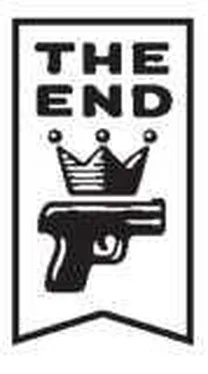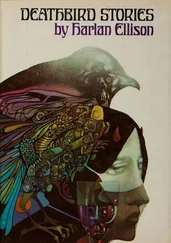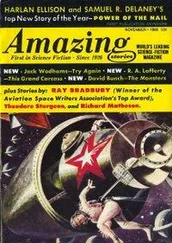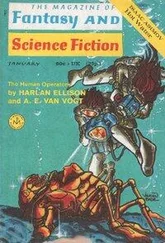Rusty stood with his hands deep in his pants’ pockets, not saying anything, neither recognizing the comments nor denying them. But a thin, satisfied look crept over his lips. They weren’t bad kids—good guys when they had the chance. Except who the hell ever gave them half a chance?
The cop motioned to the officer who had brought in the dossier and the man came up closer to the counter, stood on tiptoe and leaned in. The sergeant leaned across and they spoke together for a few moments.
Then the sergeant nodded, said, “I don’t know,” and the other said, “So give him a ring. It’s early. Maybe he can do something.”
The sergeant nodded again and picked up the phone. He spoke into it, waited a moment, then looked down for something in the dossier. Rusty had a good idea what was happening and he wanted to croak.
The cop was going to call Pancoast. What a bitch of a deal! There went all the teacher’s confidence in him.
The cop started dialing and Rusty moved to stop him. The cop looked up and Rusty had an abrupt, terribly vivid impression of bars, between himself and the cop, and he said nothing.
The cop got the number and listened. It rang. Again. Finally, after perhaps a minute, he hung up.
He stared at Rusty for a moment, then leaned over, said, “You’re out on custody, you know.”
There was no point to answering, so Rusty didn’t.
“I said something to you, kid—Santoro.”
Rusty nodded, “Yessir.”
“You knew there was gonna be a rumble tonight?”
Rusty spread his hands eloquently. “That’s why I went after my sister. I heard there was gonna be trouble.”
“You know you’re skatin’ pretty thin ice, Santoro.”
“Yessir.”
“Go on home and we’re gonna call this Pancoast. He’s not answering now so we’ll call him tomorrow, and we’re gonna give him a report on this, let him decide if he still wants you under his custody. If not, you’ll sail into the pokey so fast it’ll make your butt ache. Be at home when we want you.”
Rusty was amazed. Go home? Just like that? What was this? What was the catch?
The boy turned and started toward the door.
The Cherokees set up a howl.
“Hey, man! That ain’t no fair!”
“You gonna let him go like that?”
“You let him go, you gotta let us all go!”
“Lousy fuzz-lover!”
The sergeant bit his lower lip, regretting his decision. Then, “Hey, you. Santoro. Wait a minute.”
The cop tapped a pencil against the desktop, then said resignedly, “Wiswell, put him in a cell, by himself, till tomorrow. Protective, call it. We’ll call this Pancoast tonight again and if he doesn’t answer, then tomorrow morning. Can’t just let him go without some word, y’know.” His voice was apologetic, to no one but himself.
“Tomorrow’s Sunday,” said Wiswell.
“I know it,” the desk sergeant snapped back. “Do like I told you.”
The officer named Wiswell took Rusty by the arm and led him from the squad room, down the corridor.
They opened the cell block and Wiswell walked Rusty down the broad aisle between the cubicles. In the center of the room was a heavy wooden table and benches joined together like a picnic table, and bolted to the floor. Either wall was the barred face of a cell.
Wiswell stopped before one of the empty ones and motioned to the end of the line. The turnkey there threw the bar and the cell door slid into the wall. Wiswell motioned Rusty forward and the boy walked into the cell.
“Wait a minute,” said the cop. “We didn’t book you in because you’re not charged. But you better let me have your tie and belt. Any weapons hidden?”
Rusty shook his head, and slipped off his tie. He pulled the belt loose with a swishhh and handed it over, too. Wiswell took them, said, “Ask the guard in the morning…I’m not going to bother with a receipt tonight. Too late.
“Take it easy,” he added and left the cell.
Once outside, he motioned again and the cell door slid to with a clump. Rusty looked around: a metal trough without a mattress suspended by clamps from the wall (bowed in the center, and smelling faintly of urine and the last man who had slept there); a toilet without seat or paper (a wall button for flushing); a sink with one hold-in button (cold water only); a wire-shielded naked bulb in the ceiling.
Even as he stared at it, the light went out, throwing the cell into striped duskiness.
From a cell across the block, a Negro voice called out to him. “Ay, man.”
Rusty moved to the bars, hooked his fingers through, and tried to stare across, to discern who was speaking. Finally, through the darkness, he got a dim picture of the big, ebony shape in the other cell. The man repeated his first greeting.
“Whaddaya want?” Rusty answered, wary, though separated by two thicknesses of steel bar.
“Ay, man, you got a cigarette there for me? I ain’t had one in fo’ hours.”
Rusty fished in his pocket, came out with the deck and pulled one loose, then he realized they were beyond flipping distance and if he chanced it the cigarette would lay in the aisle till morning when they were turned loose into the tank.
“How’m I supposed to get it over to you?” Rusty asked.
The big Negro pressed up against the bars, instructed, “You lay it down on the floor, man, and then like you snap yo’r finger aside it, and it should roll right in here sweet-like. Okay?”
Rusty did as he had been told, and snapped his finger against the tube, sending it spinning straight across. It rolled, and for a second he thought he had not tapped it hard enough, but the years playing “knuckles-down” in the streets had done their work. It skittered across and the man reached out, snaring it.
“I got no matches, man.”
Rusty threw him the matches. They struck the cell door, and rebounded, but not out of reach, and in a few moments he saw a firefly tail winking in the blackness across from him. He watched the dim shape silently, then heard the soft, “Thanks, man,” and grunted an acknowledgement.
After a little while, Rusty realized he had been standing at the bars, his fingers hooked through, without movement, and though he knew no one could see him, he was aware that this was the traditional melodramatic pose of the prisoner and he stepped away from the cell door.
There was a barred window far down at the end of the tank. Through it he could see the night sky. It was as though he were in a well, looking at the stars. But there were no stars. And no moon. And no clouds. And nothing up there but what should be there; the sky. Somehow it meant something to him. He wasn’t quite sure what, but he thought it meant something like inevitability. It was a cinch the sky was there and it was a cinch he was down here in the cell. That was the way it was and the way it would wind up. You’d never find the sky being used as a rug and you’d never find Rusty Santoro living the good life. Didn’t figure.
He sat down on the trough, then remembered the last prisoner had peed in it and got up before he felt moisture. He slouched against the wall and then decided he, too, wanted a smoke. He had the cigarette in his mouth before he remembered he had no matches.
“You wanna send them matches back?” he asked.
For a second he saw relationships all too clearly, and was sure the Negro would say, “Go screw yaself. I got ’em, they’re mine.”
The Negro said, “Sure ’nuff, man,” and they skittered across the floor, sliding up against the cell door. Rusty reached down in the darkness and found them.
As he was lighting up, the other prisoner remarked, “A real bitch, man.” As though they were not in jail, merely neighbors. A casual remark, so incongruous.
Читать дальше












